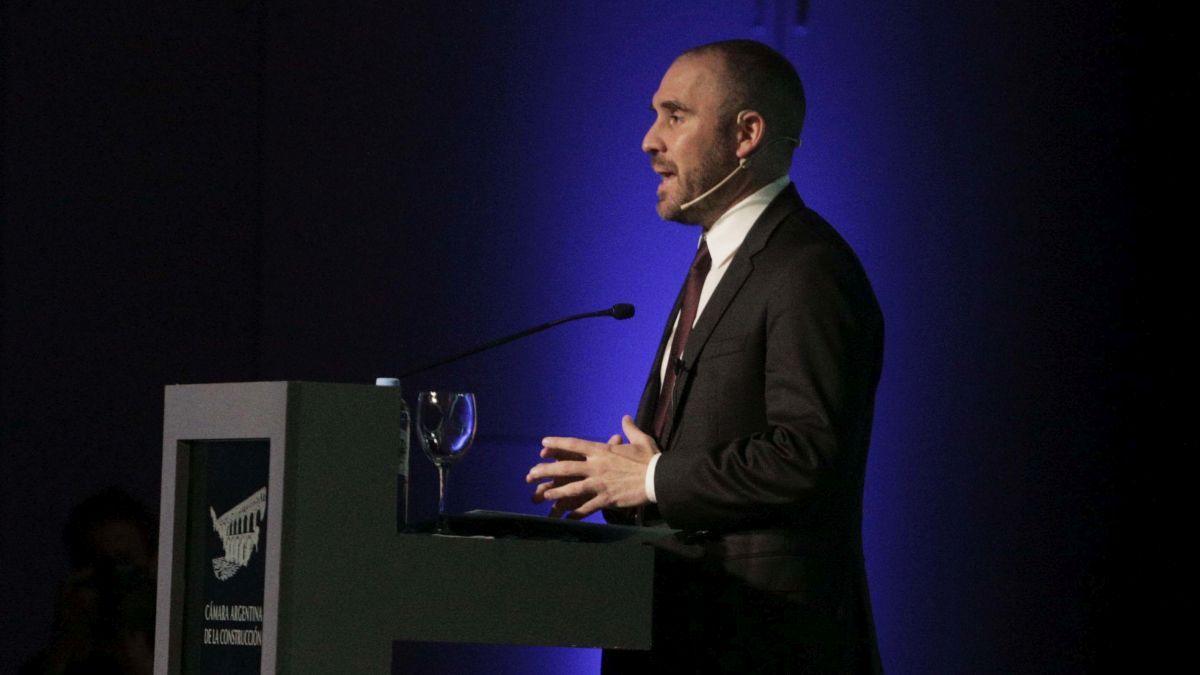This ability to establish fears, to explain an urgent need to establish the austerity of social spending as something necessary for life in democracy, was a decisive instrument in the architecture of common places from which the stories that articulated ideological and hegemony were constructed. cultural power for forty-five years.
The weight that global economic organizations, universities and their graduates have acquired until today to homogenize a political discourse that systematically denatures and distorts political and economic facts also intensified the phenomenon. The strange thing is the way in which the media and the center-right academics completely ignored what progressive intellectuals wrote, to the point of unleashing every other space of opinion.
It was encouraged before and now it is encouraged from the universities, students and media newsrooms to not take into account at all the social consequences of an eventual outbreak. But the most worrying thing is how that story silenced even Peronism in the 1990s. In 2001, even FREPASO-left wing of the Alliance-favored the return of Domingo Horse to the Ministry of Economy of the Nation. We now know from the written and audio-visual files that everything was endorsed by the major media that supported it as if the battery of laws, decrees and regulations of 2001 in general, had been a succession of incontestable certainties.
It seems logical to think that, beyond fantasy, reality should have broken through earlier, but that did not happen until the crisis caused the social outbreak of December 2001. Twenty years have passed since the catastrophe.
After the crisis of 2001, an alternative story emerged and, above all, we know what had the capacity to be coherent and to articulate politically. The Argentine experience seems to show that institutions are not enough when political representation is delegitimized. [Gervasoni: Lo que puede denominarse “crisis argentina de 2001” fue en realidad un conjunto de crisis de diferente índole que ocurrieron al mismo tiempo, y que en muchos casos se reforzaron unas a otras. Hubo crisis económica (agravamiento de la recesión), crisis financiera (huida de capitales, explosión del riego-país, corrida bancaria, default y maxidevaluación), crisis social (aumento del desempleo y la pobreza; correlativo aumento en el nivel de protesta social) y una o varias crisis políticas (la renuncia del vicepresidente y líder de uno de los dos partidos de la coalición gobernante en octubre de 2000, la renuncia de varios ministros en protesta por los anuncios de ajuste fiscal del nuevo ministro de economía López Murphy en marzo de 2001, y la caída del gobierno de la Alianza en diciembre de ese año)].
Gervasoni makes exhaustive mention of state events, not so much about their costs and their actors specifically, but we can add that; For example, in the “Mega swap” it was carried out at a rate of 15% in dollars, and the promoters of the negotiation were recognized technicians from Foundations and universities financed by private companies or former Bank managers (Cavallo’s team of collaborators were: Federico Sturzenegger, Guillermo Mondino, Daniel Marx) who had an active participation, imposing a plan called “Zero Deficit Rule”, which committed the country with the IMF, international investment banks and bondholders to a policy of extreme austerity .
Before they passed through the cabinet: (López Murphy, Daniel Artana, Manuel Solanet, from FIEL) and the president of the Argentine Credit Bank, Fernando De Santibáñez, in the intelligence secretariat. Gervasoni then goes directly to the formal declaration of the default, when de facto, it had already occurred by breaching commitments and compulsively extracting money from the AFJPs, first privatized.
Gervasoni then says: [El estado se quedó sin financiamiento de los mercados voluntarios y, luego de recurrir a mercados especiales (primero una ayuda del FMI en septiembre y luego a la apropiación de una creciente proporción de los fondos de jubilación locales) que le permitieron postergar el default por unos meses, declaró la suspensión de pagos de la deuda pública a partir de fines de diciembre (durante la brevísima presidencia de Adolfo Rodríguez Saá)].
The transfer of political power to the technocracy and / or finance (BCRA independent of the political power, “super minister of economy” with supreme powers voted by the National Congress), has had a decisive impact on the evolution of the Argentine crisis of 2001, fundamentally by following the recommendations “established by the multilateral credit organizations” and the “best market practices; understanding that the legitimate political leaders (the executive power first, and the legislative power later with the enactment of the Law called “special powers”), as mentioned, delegated political decisions to officials of the Ministry of Economy, and in turn The latter accepted all of the IMF’s conditionalities, including the recommendations of the same body, such as investment banks, international and local consulting firms.
We could add an epiphenomenon that would support the idea that Argentine officials from the Ministry of the Economy -who in March 2001 came to receive “full powers” from Congress-, did not do enough to preserve local interests, exercising sovereign rights to establish the public policies themselves, which include economic, social and international aspects, it could rather be that their decisions have coincided with the external and internal impositions of the international ideological and political biosphere, evoked as the “neoliberal environment”.
It was the expedition of the so-called “Convertibility law” what regulation the economic political phenomenon which gives significance to local neoliberalism, but did so in terms of legality vis-à-vis the citizens, established the preconditions to initiate a process of privatization and opening of markets never seen before, establishing an institutional support structure, reiterating once again the symbolic efficacy of laws and ideological-technocratic dominance, in contrast to the acute social gap that would gradually consolidate and end with a financial and institutional crisis.
Thus, the “liberalizing” concept of public policies, the forced treatment towards Congress to converge with the postulates of the Washington Consensus and the multilateral credit organizations, takes on special relevance. The causes of the displacement of political power towards finances-managed by representatives of private corporations or multilateral credit organizations (concept of: Stiglitz revolving door, which means that these officials of a more or less stable cast, at one time work for the public institutions and then in other times they do it for private corporations), much more forced by the globalization of markets in the nineties, are complex and have a close relationship, as stated with the concession of the Alliance politicians linked by the most conservative sector and close to the establishment of the UCR, towards the different forms and methodologies of forcing a country through pressure, at the risk of falling into social and economic conflicts, many of which, paradoxically, are the consequence of applying this type of public policies.
The quantitative economists they must be prepared to make use of economic data without neglecting that fundamentals are, at best, an imperfect glimpse of reality. The introduction to the study of the national income of González and Tomasini that we studied in the first year, it has been a yawning literature to later join the science fiction of macroeconomics. This does not mean that quantivists conceive events, we believe that they persevere considerably looking for coincidences and their work is enormously meritorious. What happens is that on a close look at how the figures are constructed, you can see that the data cover is always partial in focus and the gaps are filled with distorted estimates.
INFLATION
We know a good number of quantitative economists who still get angry with anyone who doubts that inflation is a purely monetary phenomenon. Although the IMF has stated that inflation is a multi-causal phenomenon. An example of the monetary approach will simplify things by saying that an increase in monetary issuance of “n percentage points” (eg, from 30% to 35%) requires a decrease in the speed of money circulation of 5%, or an increase demand for money, so that the inflation rate does not accelerate. The neoclassical and monetarists affirm that if the fiscal situation deteriorates and the BCRA issues money, inflation will accelerate.
The real demand for money can increase or, what is the same, the speed of money circulation can decrease. Conclusion, the level of inflation depends on the behavior of the demand for money. If we expand more, people have to decide to want to have more money, or to stay with it longer. Therefore, for this theoretical framework, the problem is not the magnitude of the financing needs of the public sector, but the dependence on monetary issuance. If we wanted to talk about quantitative economics in a coherent way, we would talk about deficit or surplus. This determines the financing needs. When we talk about public spending or taxes we are talking about politics and the FDT governs.
It would be necessary to review issues from a historical and ideological perspective, although this cannot be done without entering into an anthropological analysis. However we can quote the Nobel Prize winner Joseph Stiglitz who says [Durante décadas los pueblos del mundo subdesarrollado se han rebelado cuando los problemas de austeridad impuestos en sus países han sido demasiado severos, pero sus quejas no solían tener eco en Occidente. ]…[El colapso argentino en 2001 es uno de los más recientes fracasos de los últimos años (el libro es de 2002). Dada la alta tasa de desempleo de los últimos años, lo asombroso no es que los ciudadanos se amotinaran sino que sufrieran en silencio durante tanto tiempo].
Minister Guzmán asserted that the government is going to deepen the price and income policy, to reduce the levels of inflationary inertia. “Inflation is the most important objective of economic policy. The reverse is to seek a recovery in real wages, which will continue in the years to come ”(Guzmán). Although it is a multicausal phenomenon, inflation is a wormhole for the population’s income.




